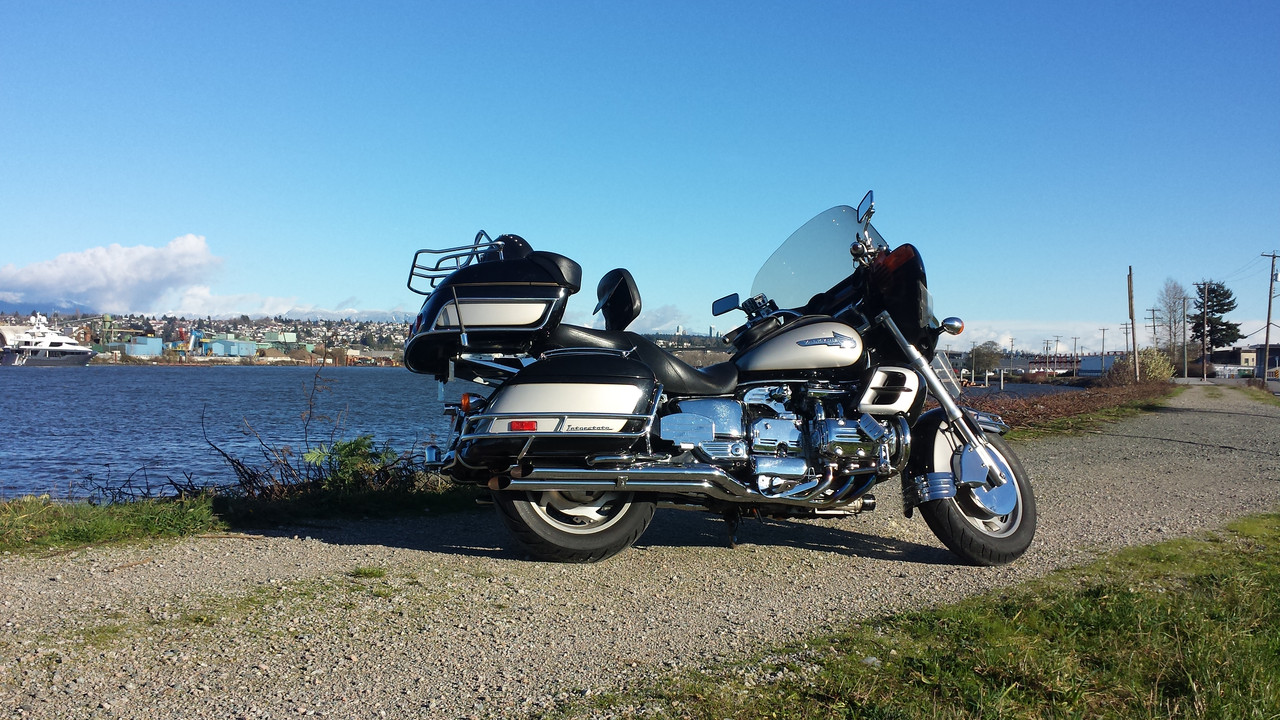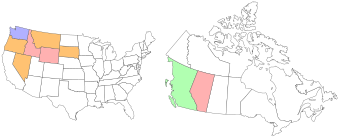|
jdp
|
 |
« on: January 27, 2016, 07:54:59 AM » |
|
I have 2 Valkyries, an interstate and a tour model, the tour model I haven't ran in about 1 1/2 years well the carbs were clogged, I tried everything so I would have to pull them for cleaning, well I drained all the fuel and put about 1 gallon of 112 octane racing fuel in and got it running, played with it so it would low idle threw the slow speed jets and about a gallon later it cleared up, starts, idles and no hesitation, maybe got lucky or maybe it worked, just thought I'd pass this on.
|
|
|
|
|
 Logged
Logged
|
|
|
|
gordonv
Member
    
Posts: 5766
VRCC # 31419
Richmond BC
|
 |
« Reply #1 on: January 27, 2016, 05:41:59 PM » |
|
I've had my bro-in-law suggest using AV gas to do just that, clean out the jets. Isn't that also in the 100+ range of octane, just like the higher race fuel?
|
|
|
|
|
 Logged
Logged
|
1999 Black with custom paint IS   |
|
|
|
Sircharles
|
 |
« Reply #2 on: January 27, 2016, 06:58:55 PM » |
|
Sorry to hear, I work on boats and constantly run into this. We all have the corn lobby to thank for this hoax being foisted upon us. I have learned the hard way to store anything powered by gas either dry (carbs as well) or to store them with Race gas. Some places sell gas with no ethanol. That and a bit of fuel stabilizer (not cleaner, stabilizer) will keep a tank for a season. For anything longer than an off season you really should run your beast and change out the fuel. I hear a ton of stories of things lasting longer, but its playing roulette, and the results will be very bad for guys like us with 6 carbs. Luckily, the Valk is fairly straight forward to work on, though still a job. I wish you well. Lots of good info here on this site.
|
|
|
|
|
 Logged
Logged
|
Guitars and Motorcycles are alot alike. It sucks when you drop them.
|
|
|
|
Ricky-D
|
 |
« Reply #3 on: January 28, 2016, 10:11:54 AM » |
|
Though there are some that will disagree with this, gasoline, no matter what octane or purity will have no affect
upon any contamination or crud buildup in the carburetors (like clogged jets) that is a result from storage of
the bike with ethanol enriched gasoline. Algae, mold and fungus which are the culprits, are not soluble in gasoline
and the correct way to deal with these things is with a good strong, and generous dose of an additive, which is
designed expressly for this ailment. The idea that the residue is shellac/varnish is like an old wives tale, and also
the thinking it is rust (because it is red in color), belies the fact there is a filter screen in the tank.
***
|
|
|
|
|
 Logged
Logged
|
2000_Valkyrie_Interstate
|
|
|
|
Sircharles
|
 |
« Reply #4 on: January 28, 2016, 08:19:12 PM » |
|
Gas/ethanol is in fact unstable. There is a point when the percentage of ethanol and absorbed water exceeds the fuels ability to support it (phase shift) and it drop to the bottom of the tank. I have seen samples shift on humid days. Forgetting that, it is corrosive, and breaks down the rubber parts of older machines. The black rubber nitrile bits degrade and pollute the system, aside from causing air and fuel leaks. Viton o rings and gaskets are better, but still not as good as taking some preventative measures. Some of this depends on where you live, not all mixtures are the same. Here in the NE it seems to be particularly bad. http://www.lcbamarketing.com/phase_separation_in_ethanol_blen.htmhttp://www.marcorubber.com/materialguide.htm |
|
|
|
|
 Logged
Logged
|
Guitars and Motorcycles are alot alike. It sucks when you drop them.
|
|
|
|
Paladin528
|
 |
« Reply #5 on: January 29, 2016, 11:25:01 AM » |
|
The ONLY difference between 87 octane and 100 octane fuel is OCTANE. There are no detergent properties inherent to the gas although some companies add additives to the gas for that purpose. 100 Octane or 112 racing fuel actually burns SLOWER than 87 octane and is for all intents and purposes less volatile due to the OCTANE.
Gasoline is all the same as a base product. Same molecules involved. The refiners then add ethanol to the mix (for truly stupid reasons) which actually increases the octane rating slightly. Then they add OCTANE to the mix for different grades of gas more octane higher the number. We also used to use Lead for this purpose but that is bad news.
A clean Valkyrie engine will run best on 87 octane fuel with anything up to 10% ethanol as that is exactly what it was designed to burn.
|
|
|
|
|
 Logged
Logged
|
|
|
|
|
Sircharles
|
 |
« Reply #6 on: January 30, 2016, 08:00:30 PM » |
|
When I referred to race gas,it wasn't because of octane, it was because race fuel has no ethanol.
Some stations also have 0 ethanol fuel as well, it just happens that locally that's how I get it, and it is excellent for storing motors long term. Nothing to do with octane.
|
|
|
|
|
 Logged
Logged
|
Guitars and Motorcycles are alot alike. It sucks when you drop them.
|
|
|
|
Oldnick
|
 |
« Reply #7 on: January 31, 2016, 04:38:42 AM » |
|
Sorry I can't resist this. Bad gas is what happens to me after a full night out. Good gas is the stuff we cook on: same stuff deoderised!:D
If I had a more contstructive reply I would, but in Oz the whole game may or may not be different
|
|
|
|
|
 Logged
Logged
|
Nick
May God save us from believers!
|
|
|
|
Robert
|
 |
« Reply #8 on: January 31, 2016, 05:14:56 PM » |
|
Though there are some that will disagree with this, gasoline, no matter what octane or purity will have no affect
upon any contamination or crud buildup in the carburetors (like clogged jets) that is a result from storage of
the bike with ethanol enriched gasoline. Algae, mold and fungus which are the culprits, are not soluble in gasoline
and the correct way to deal with these things is with a good strong, and generous dose of an additive, which is
designed expressly for this ailment. The idea that the residue is shellac/varnish is like an old wives tale, and also
the thinking it is rust (because it is red in color), belies the fact there is a filter screen in the tank.
***
Yup I surely disagree, Algae, mold and fungus clean off jets and carbs but the stuff that is in ethanol gasoline is strong enough to stain the jets so the color never goes back to the bronze color but instead always has a green tinge to it. Even acid does not clean this stuff off the jets. It looks like the preservative that they use on telephone poles now that is green. In all the years that I have worked on gas and diesel engines, and carbs and fuel injection I have never seen this type of deposit before ethanol came out. Diesel has algae mold and fungus and they clean off and can be eliminated not this stuff. |
|
|
|
|
 Logged
Logged
|
“Some people see things that are and ask, Why? Some people dream of things that never were and ask, Why not? Some people have to go to work and don’t have time for all that.”
|
|
|
|
Pappy!
|
 |
« Reply #9 on: January 31, 2016, 08:32:31 PM » |
|
Though there are some that will disagree with this, gasoline, no matter what octane or purity will have no affect
upon any contamination or crud buildup in the carburetors (like clogged jets) that is a result from storage of
the bike with ethanol enriched gasoline. Algae, mold and fungus which are the culprits, are not soluble in gasoline
and the correct way to deal with these things is with a good strong, and generous dose of an additive, which is
designed expressly for this ailment. The idea that the residue is shellac/varnish is like an old wives tale, and also
the thinking it is rust (because it is red in color), belies the fact there is a filter screen in the tank.
***
There is indeed the formation of Gum and varnish residues when gasolines suffer prolonged exposure to oxygen and some metals. Note that the information provided mentions nothing about algae, mold, and fungus. http://www.amspecllc.com/_media/amspec_techtalk_e_stands_for_existent_gum_content_(2).pdfIn addition, the detergents and dispersants also contain alkylamine phosphates which contain trace elements of salts which can and do produce various levels of corrosion when exposed to bi-metals in carburetors (brass, aluminum) and exaggerated with increased levels of moisture created by the use of alcohol extended gasolines. The corrosion inhibitors contain traces of carboxylic acids, phosphoric acids, and sulphonic acids. As far as additives go be aware that any additive/fuel system cleaner that contains ammonia in any of its forms may do the job it is purchased for but in doing so will attack brass parts inside carburetors. |
|
|
|
« Last Edit: January 31, 2016, 08:57:24 PM by Pappy! »
|
 Logged
Logged
|
|
|
|
|

